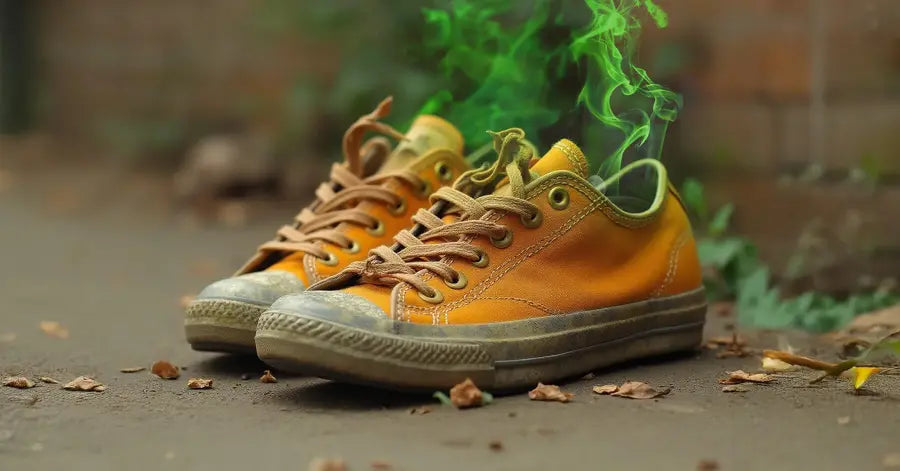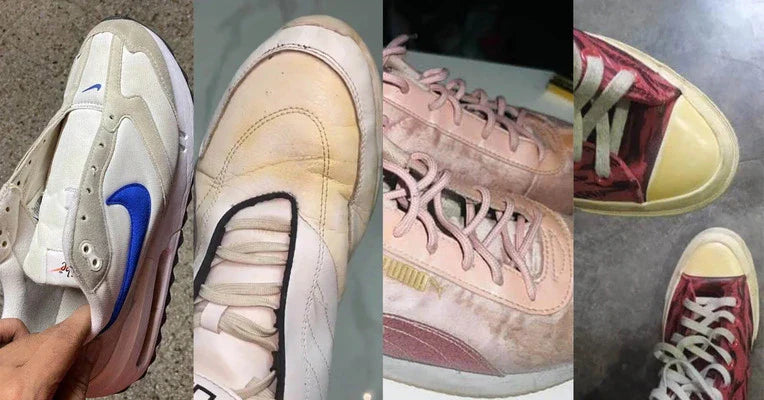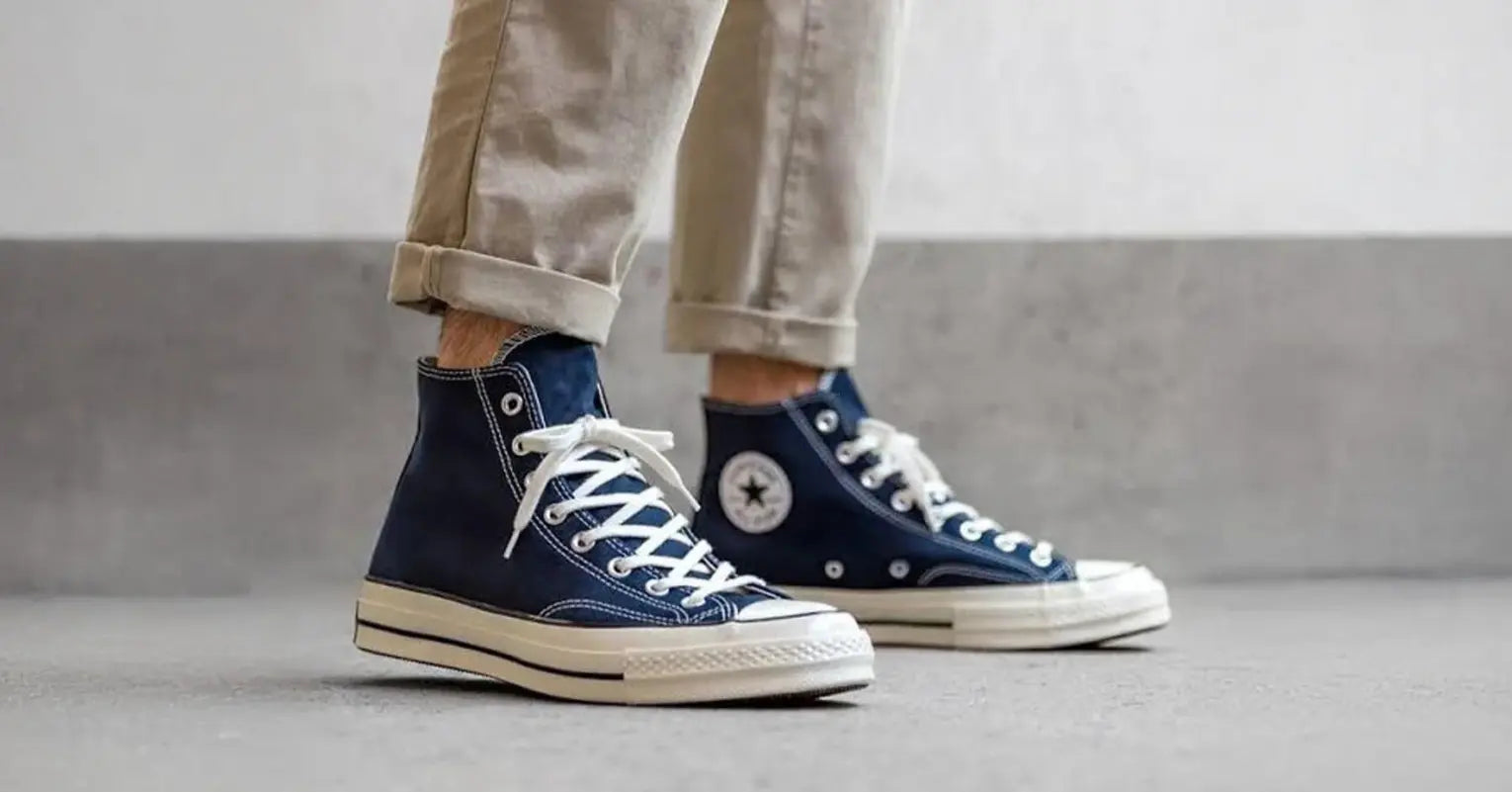
The science behind shoe odor: Causes and prevention
Why Your Shoes Smell — And What to Do About It
We've all been there. You take off your shoes at the end of a long day, and BAM—an invisible cloud of funk smacks you right in the face. Whether it’s your gym sneakers, office loafers, or your favorite casual kicks, shoe odor is real, persistent, and scientifically explainable.
Let’s get into the gritty details — and more importantly, how to keep your shoes from becoming a biohazard.
1. The real culprit: bacteria
Here’s the not-so-fresh truth: your feet have over 250,000 sweat glands, and they can produce up to half a pint of sweat per day. On its own, sweat doesn’t stink. The problem starts when that moisture gets trapped inside your shoes — warm, dark, and damp — aka the perfect breeding ground for bacteria.
These bacteria break down the sweat, dead skin cells, and any other grossness into acids — particularly isovaleric acid — which smells like cheese mixed with gym socks.
Yup, your shoes are basically a low-budget science lab.
2. Common causes of shoe odor
2.1. Sweaty feet (hyperhidrosis)
Some people just run hotter than others — literally. If your feet tend to sweat more than average, your shoes become the perfect incubator for odor-causing bacteria.
2.2. Poor ventilation
Shoes made with synthetic materials or tight-fitting designs don’t let your feet breathe. That trapped heat and moisture? A VIP invitation for bacteria and odor.
2.3. Wearing the Same Shoes Every Day
Wearing the same pair every day doesn’t give them time to fully dry out. Moisture builds up, bacteria multiply, and suddenly your go-to kicks smell like they’ve been on a week-long hike without you.
2.4. Fungus (yes, like athlete’s foot)
Moist, dark shoes are a dream home for fungi. Not only can they cause infections, but they also bring their own signature scent to the party — and it’s not a good one.
2.5. Socks that trap moisture
Think cotton is comfy? Sure. But when it comes to moisture, cotton socks soak it all in and hold it — right against your feet. That wet sock environment only makes things worse for your shoes.
3. The prevention plan: How to keep it fresh
Good news: you don’t have to toss your kicks every time they start to stink. Here’s a science-backed strategy to fight back.
3.1. Rotate your shoes
Give each pair at least 24 hours to air out between wears. This helps moisture evaporate and slows bacterial growth.
3.2. Use antibacterial or moisture-wicking insoles
Replace the factory insoles with ones designed to fight odor and wick away sweat.
3.3. Keep feet clean and dry
Wash your feet daily and dry them thoroughly, especially between the toes. You can even use foot powders or antiperspirant sprays for extra protection.
3.4. Give your shoes a proper wash
Wash your shoes properly when they get too dirty - especially the insoles. You can use a washing machine for some types of shoes, but always follow precautions and use a shoe laundry kit (shoe laundry bags and pods). If machine washing isn't suitable, clean them by hand using the right cleaning solution and shoe cleaning brushes based on the material.
3.5. Let your shoes breathe
Don’t store your shoes in a dark closet or gym bag right after wearing them. Leave them in a well-ventilated area to air out properly after each use.
3.6. Use shoe deodorizers or fresheners
Keep bad odors at bay with the help of shoe deodorizers or fresheners. Whether it's spray, powder, odor-fighting insoles, or natural options like activated charcoal or tea bags, these products help absorb moisture and neutralize unpleasant smells - leaving your shoes smelling fresh and ready for action.
SHOEGR Charcoal Freshener will surely help you with bad shoe smell. Made from 100% bamboo charcoal, these sachets absorb and eliminate odors, bacteria, and moisture.
3.7. Socks matter
Choose socks made of merino wool, bamboo, or synthetic moisture-wicking blends. They keep sweat away from your skin and out of your shoes.
4. What NOT to Do?
- Do not wear shoes without socks — unless you like the smell of fermented regret.
- Do not leave your shoes in a damp gym bag or locker.
- Do not rely on just spraying air freshener — that’s masking the problem, not solving it.
- Don’t ignore your insoles — they soak up the most sweat. Remove and clean or replace them regularly.
- Don’t store your shoes in a closed, airtight space — Lack of ventilation means moisture gets trapped, leading to odor (and possibly mold).
Final thoughts
Shoe odor isn’t just a social embarrassment — it’s a biological issue. But once you understand the science behind it, prevention becomes a lot easier. A few mindful changes to your daily habits can keep your shoes (and feet) smelling fresher, longer.
And if all else fails? Maybe it’s the universe telling you it’s time for a new pair.


